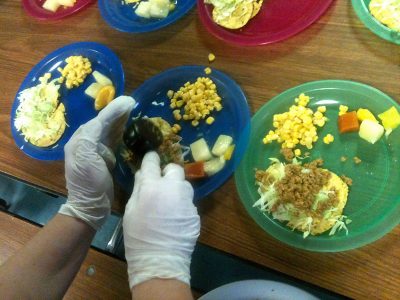The nutrition gap: A fight for quality food for Mississippi’s littlest learners

Debbie Ellis remembers the instant potatoes, chocolate pudding and classic Southern fried foods once served at the child care centers she owns in Greenwood, Miss. Watching kids eat was a joy—even though spending $800 a month on groceries for meals that could hardly be called nutritious was not.
These days, Ellis has a caterer preparing meals with fruits, vegetables, whole grains and plenty of low-fat milk and 100 percent juice, all approved by the U.S. Department of Agriculture. Children are healthier and the quality of care has greatly improved, and the new diets save her hundreds of dollars a month—while guaranteeing healthier food in a state with the nation’s highest rate of childhood obesity.
When the USDA passed new nutrition requirements for school lunches in January, more U.S. students gained
These days, Ellis has a caterer preparing meals with fruits, vegetables, whole grains and plenty of low-fat milk and 100 percent juice, all approved by the U.S. Department of Agriculture. Children are healthier and the quality of care has greatly improved, and the new diets save her hundreds of dollars a month—while guaranteeing healthier food in a state with the nation’s highest rate of childhood obesity.
Mississippi has the highest rate of child obesity, which advocates of federally funded food programs say could be addressed by serving healthier foods at younger ages. (Photo by Annie Gilberston, Southern Education Desk)
“We don’t have that [joy] now,” Ellis joked, “but we do have good quality.”When the USDA passed new nutrition requirements for school lunches in January, more U.S. students gained
